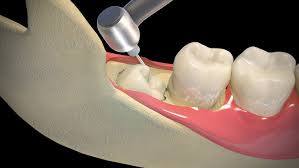Decoding the Phases of Clinical Trials and Their Purpose
Introduction to Clinical Trials
They are unlocking the mysteries of medicine and safeguarding public health, which hinges upon the critical role of clinical trials. These systematic studies are the backbone of medical advancement, allowing researchers to unravel the complexities of diseases and craft innovative treatments. The participants’ journey and the results of clinical trials for patients are vital for those who stand at the crossroads of participating in such studies. Indeed, these clinical encounters are not just about contributing to science; they are also a conduit for individuals to access new treatments and be active in the quest for better health outcomes.
Understanding Preclinical Research
The maiden voyage of any prospective treatment begins far from the clinical setting—in test tubes and animal models. Preclinical research is a phase of exhaustive scientific inquiry where hypotheses are tested, and molecules become potential medicines. The data collected offer crucial insights that help predict how new treatments might behave in human bodies. It’s a time of discovery and refinement, where safety is paramount, and efficacy is a hopeful forecast. This stage must comply with an elaborate tapestry of regulations that govern laboratory research to ensure that every step is methodically documented and reproducible.
Phase I Trials: An Initial Assessment
The transition from testing a new treatment in a controlled laboratory setting to administering it to actual patients marks the beginning of Phase I clinical trials. During this phase, small volunteers, often healthy individuals, are recruited to participate. Their involvement is crucial in establishing a baseline for the safety and tolerability of the new treatment. Researchers carefully monitor how the human body processes the treatment and assess its potential side effects. These early investigations are essential in laying the groundwork for the broader application of the therapy, with a strong emphasis on closely monitoring any adverse events and adjusting dosages in real time to ensure the well-being of the participants.
Phase II Trials: Exploring Effects
In the initial stage of establishing safety measures, Phase II trials expand their scope to include a larger pool of participants, specifically targeting those with the condition the new treatment aims to address. This phase marks a crucial juncture in which the effectiveness of the therapy takes center stage, prompting scientists to gather substantial evidence regarding its performance. These trials typically incorporate randomization and control groups to gain a comprehensive understanding of the treatment’s impact while maintaining a strong focus on safety protocols. Phase II is a testament to the meticulous, step-by-step approach that defines the clinical trial process.
Phase III Trials: Confirming Efficacy
In Phase III clinical trials, the focus shifts to a more extensive and diverse group of participants, often involving thousands of individuals from various demographics and geographical locations. This phase serves as the ultimate testing ground, aiming to confirm the effectiveness of the treatment, closely monitor any potential side effects, and compare the new intervention with the current best-available treatments. These large-scale studies are meticulously designed to provide comprehensive insights into the benefits of treatment. The data collected from Phase III trials are crucial, forming the foundation of the regulatory submission for new therapies.
Phase IV Trials: Post-Marketing Surveillance
The journey of a new treatment continues after its introduction to the market. Phase IV trials, also called post-marketing surveillance, play a crucial role in further examining the real-world application of the treatment. This longitudinal phase involves monitoring the long-term effects of the therapy and collecting data on its efficacy and potential side effects in a more diverse patient population. These trials can reveal interactions with other medications or conditions, leading to the refinement of treatment protocols or the identification of new indications. It’s a testament to the ongoing commitment to ensuring patient safety and maximizing treatment efficacy within the diverse landscape of the general population.
Ethical Considerations in Clinical Research
Ethical principles serve as the guiding force for the intricate process of clinical trials. These trials are conducted with the utmost respect for the participants’ rights, integrity, and confidentiality. Informed consent goes beyond mere procedural steps; it represents a profound commitment to transparency, ensuring that participants understand the nature and implications of their involvement. Furthermore, regular oversight by ethics committees and institutional review boards is indispensable to research involving human subjects. This ethical framework adds complexity to the process. It is pivotal in fostering trust between the scientific community and the individuals who selflessly volunteer to advance knowledge and medical progress.
Patient Participation and What to Expect
The decision to partake in a clinical trial is deeply personal. It is based on both altruism and self-consideration. Prospective participants grapple with questions about the process, the potential risks and benefits, and how their daily lives may be affected. Clear explanations from healthcare providers about the trial’s objectives, procedures, and possible impacts on health and lifestyle are invaluable. The journey requires careful thought, supported by extensive communication and empathetic care. Individuals play a critical role in their health management and medical progress through their participation.
The National Institutes of Health provides a robust framework for understanding the clinical trial process, allowing patients and healthcare professionals to delve deeper.



